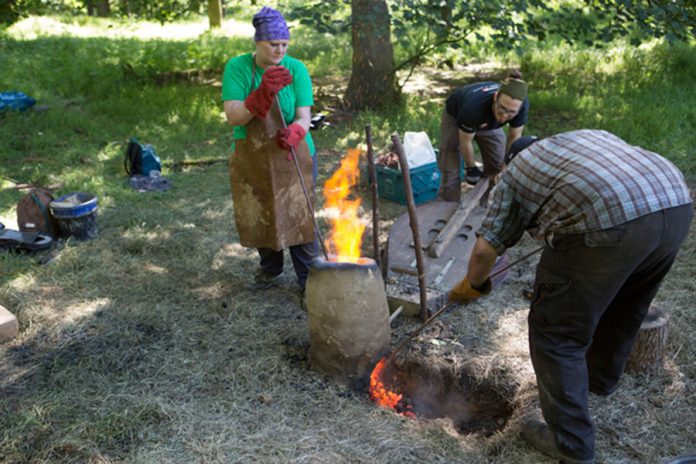University of Bradford in collaboration with Pennine Prospects have announced the call for papers for the Celebrating Our Woodland Heritage Conference. They hope to attract academics from a range of disciplines, archaeologists (both professional and community), land owners, teachers and volunteers – anyone who seeks a deeper understanding of the heritage value of our woodlands.
The organisers are inviting proposals for presentations and/or posters from individuals involved in the study or promotion of our woodlands, to share in this celebration of our unique heritage.
For general enquiries and all submissions please contact: woodlandsconference@bradford.ac.uk
Please note the closing date for paper submissions is 22 June 2018 and posters is 16 October 2018.
Investigating Woodland
The past century has seen the development of many techniques for investigating woodland heritage spanning the disciplines of archaeology, ecology and history. More recently, open source tools such as LiDAR and 3D technology have provided community groups, individuals and academic researchers alike with incredibly detailed models of the landscape. This has created a fresh platform from which to question both the how and why of woodland change. What drove shifts in woodland cover and composition? Which forces led to different management of wooded landscapes? What effect did these changes have on communities, their resource use, and their experience?
The current challenge to woodland historians and archaeologists is to imagine more cohesive interpretations of past wood resource use and management, and then to share these stories with a wider audience.
Several landscape-scale projects across the UK, have achieved high levels of public engagement and begun to create a thriving cross-disciplinary approach embracing both community and academic research. It is clear that there is much to be gained from sharing and discussing the methods and outputs of these projects. Understanding the successes and challenges experienced during this type of collaborative work is vital, for example achieving educational goals, publishing data post-project, and effectively engaging with land owners and managers.
Both academic and community-led research have opened up a world of potential for broad-perspective interpretation, and further dialogue between these approaches can bring us closer to an understanding of the various roles of trees and woodland products in social and economic systems of the past. This includes, but is not limited to, contributions from traditional survey and excavation, pollen analysis, economic and social history, charcoal studies and landscape archaeology. There are many examples of pioneering academic research, ranging from the archaeology of charcoal production sites (Hazell et al. 2017) to the economic motivations behind evolving estate woodland management in East Anglia (Barnes and Williamson 2015). Richer and Gearey’s (2017) work on improving the accessibility of pollen data to non-specialists is expanding ways of supporting public perceptions of the ‘living archaeology’ of cultural wooded landscapes.
This conference will explore key themes which can broaden our horizons and improve connections between all parts of society interested in woodland history, including:
- What an interdisciplinary understanding of past wooded landscapes can offer to the wider fields of archaeology and history
- The challenges of collaborative research across disciplines and different spatial scales
- How community-based landscape archaeology projects investigate woodlands: their methods, contributions and potential
- Open source technologies for community and individual research
The organising team welcomes the submission of papers and posters for presentation at the conference, particularly those discussing the key themes.
Chris Atkinson, Pennine Prospects
Claire Copper, University of Bradford
Robin Gray, Pennine Prospects
Hywel Lewis, University of Bradford
Gill Thompson, University of Bradford

